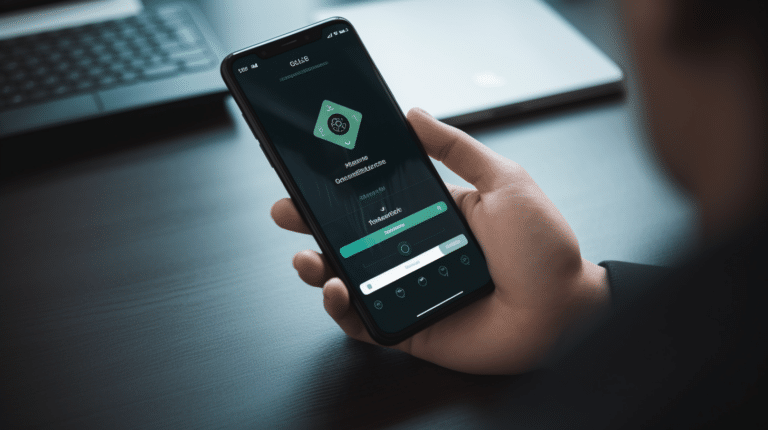Distributed Denial of Service (DDoS) attacks have become an increasingly worrisome threat for businesses and individuals alike. These attacks can take a variety of forms, ranging from overwhelming a target’s network with traffic to exploiting vulnerabilities in network systems. As such, protecting against these threats requires a robust security strategy. One of the tools commonly considered in this context is a Virtual Private Network (VPN). But can a VPN effectively prevent DDoS attacks? To answer this question, it is important to understand what VPNs are capable of and how they interact with DDoS attacks.
VPNs primarily provide a secure, encrypted connection through which users can access the internet. This encrypted connection helps protect users from various online threats, such as snooping and Man-in-the-Middle attacks. However, the ability of a VPN to prevent DDoS attacks is not as straightforward. While VPNs can provide some level of protection in certain scenarios, there are cases where a VPN alone may not be enough to thwart the efforts of a determined attacker. To gain a comprehensive understanding of the role of VPNs in preventing DDoS attacks, it is essential to examine the interplay between VPNs, DDoS attacks, and other factors such as Internet Service Providers (ISPs) and firewalls.
Key Takeaways
- VPNs offer a degree of protection against DDoS attacks, but their effectiveness may be limited in certain situations.
- Comprehensive DDoS prevention requires understanding the interplay between VPNs, ISPs, firewalls, and other security measures.
- Identifying and selecting the right VPN for preventing DDoS attacks is crucial for robust digital security.
Understanding VPNs
A Virtual Private Network (VPN) is a technology that helps enhance your online privacy and security. It creates an encrypted connection between your device and a VPN server, allowing you to securely access the internet. By using a VPN, your data remains protected from hackers, snoopers, and even your internet service provider (ISP).
VPNs work by encrypting your internet traffic, which protects it from outside interference. This encryption ensures that any data you send or receive remains confidential. Along with encryption, VPNs often offer additional features, such as a kill switch, which automatically disconnects your device from the internet if the VPN connection is lost. This prevents your data from being accidentally exposed.
When you connect to a VPN server, your device is assigned a new IP address, which masks your true location. This provides an additional layer of anonymity, making it difficult for your online activities to be tracked. Some VPNs also offer a static IP address option, where a user is assigned a fixed IP address that does not change, offering increased reliability and compatibility with certain online services.
Another useful feature of VPNs is split tunneling, which allows you to route only specific traffic through the VPN, while the rest of your online activity bypasses the VPN connection. This can be helpful in cases where you need to access both local and foreign websites or services simultaneously.
In summary, VPNs are essential tools for maintaining online privacy and security. They provide encryption to protect your data, a kill switch for added safety, and options for static IP addresses and split tunneling to cater to individual user needs. By using a VPN, you can confidently and securely navigate the digital world.
Overview of DDoS Attacks
Distributed Denial of Service (DDoS) attacks are a prevalent cybersecurity threat where a malicious actor overwhelms a server or a network with an excessive amount of traffic. This makes the targeted system unavailable for legitimate users, causing potential damage to a company’s reputation and finances1. DDoS attacks come in various forms, including volume-based attacks, protocol attacks, and application-layer attacks2.
Volume-based attacks aim to saturate the bandwidth of the targeted site with an immense amount of traffic. Some common examples of volume-based attacks include User Datagram Protocol (UDP) floods and Internet Control Message Protocol (ICMP) floods. In UDP floods, attackers send large numbers of packets to random ports on the victim’s server3. ICMP floods, also known as ping floods or Ping of Death, involve sending numerous ICMP echo request packets to the target, overwhelming their resources4.
Protocol attacks exploit vulnerabilities in server or network protocols, aiming to consume server resources or disrupt communication between various network components. SYN floods and Smurf DDoS are well-known examples of protocol attacks. SYN floods exploit the three-way handshake process of the Transmission Control Protocol (TCP) by initiating numerous connection requests and not completing them, causing the server to be overwhelmed5. Smurf DDoS attacks use forged ICMP echo requests to exploit misconfigured network devices, amplifying the amount of traffic directed towards the target6.
Application-layer attacks, also known as low-and-slow attacks, focus on specific applications, services, or websites. These attacks are typically more difficult to detect as they involve a smaller number of connections, and can mimic standard user behavior. GET/POST floods are a common type of application-layer attack, in which malicious actors flood the victim’s server with numerous HTTP requests, exhausting its resources7.
Understanding the various types of DDoS attacks is essential for effective cybersecurity measures. Such insights help organizations implement appropriate protection and mitigation strategies, which often involve the use of VPNs to minimize the potential damage caused by DDoS8.
The Interplay between VPNs and DDoS Attacks
VPNs and DDoS attacks are two critical components in the cybersecurity landscape. Their relationship is vital as both target network systems and IP addresses. This section will explore how VPNs can provide protection against DDoS attacks and their limitations in certain scenarios.
DDoS attacks involve overwhelming a server or network with a flood of requests, causing disruption in normal traffic flow. Hackers often achieve this by compromising multiple computers, using them to send a large number of requests simultaneously. As a result, the targeted servers become unable to respond to legitimate users, leading to service downtime and potential revenue loss.
VPNs, on the other hand, are tools designed to create secure, encrypted connections between your device and the internet. By routing your traffic through a VPN server, your real IP address is masked, making it more difficult for attackers to target you directly.
Using a VPN can indeed help prevent DDoS attacks. When you connect to the internet via a VPN, your real IP address is hidden, and the IP address of the VPN server becomes visible to external entities. This makes it more challenging for attackers to target your specific device or network, as they can only attack the VPN server’s IP address. If an attacker tries to flood the VPN server with requests, VPN providers often have built-in DDoS protection measures to prevent their servers from getting overwhelmed.
However, it is essential to note that VPNs are not foolproof against DDoS attacks. In scenarios where the attacker already knows your real IP address due to a backdoor or a Remote Access Trojan (RAT) infection, the VPN would provide minimal protection against a DDoS attack. Additionally, if a VPN server itself becomes the target of a successful DDoS attack, all users connected to it might experience connectivity issues.
That being said, combining VPN use with other security measures, such as firewalls and strong passwords, can enhance your protection against DDoS attacks. While no method is completely infallible, using a VPN can significantly decrease the likelihood of becoming a target and help maintain your network’s stability in case of an attack.
Role of ISPs and Firewalls
Internet Service Providers (ISPs) play a crucial role in mitigating DDoS attacks. They are responsible for managing network traffic, and by employing proactive measures, they can significantly reduce the risk and impact of such attacks on their customers.
Firewalls are an essential element in safeguarding networks from unauthorized access and various types of cyber threats. By deploying firewalls, ISPs can monitor and filter traffic, potentially detecting and stopping DDoS attacks in their early stages.
Although ISPs can offer some protection against DDoS attacks, they can’t protect against all types of threats. For example, ISPs don’t protect against attacks that target server resources or intermediate communication equipment, such as load balancers.
This is where Virtual Private Networks (VPNs) can come in handy. Using a VPN can add an extra layer of protection against DDoS attacks by encrypting and anonymizing your internet connection. This can make it more difficult for cybercriminals to target specific devices or networks.
Some ISPs also collaborate with external scrubbing centers to handle DDoS attacks more effectively. Scrubbing centers filter and clean traffic, eliminating unwanted or malicious data. Such services can be particularly helpful for mitigating large-scale DDoS attacks that may overwhelm traditional firewall defenses.
In conclusion, a combination of ISPs, firewalls, and VPNs can greatly enhance your protection against DDoS attacks. While ISPs and firewalls offer basic security measures, incorporating a VPN into your cybersecurity strategy can provide added defense against these increasingly sophisticated threats.
Anatomy of a DDoS Attack
Distributed Denial of Service (DDoS) attacks are a common cyber threat initiated by cybercriminals or hackers. These attacks aim to disrupt a target’s network services by overwhelming their system with a torrent of internet traffic. The primary components involved in a DDoS attack include malware, botnets, and multiple compromised machines.
A key aspect of a DDoS attack is the utilization of a botnet, which is a network of compromised machines or devices infected with malware. These machines, controlled by hackers, work together to flood a targeted system with traffic, ranging in the form of bits per second, packets per second, or requests per second. Due to the massive amount of traffic coming from the botnet, the target’s system is likely to become overwhelmed, resulting in a degraded or completely unavailable service.
In some cases, attackers will attempt to gain unauthorized access to a targeted system through a backdoor. By exploiting vulnerabilities present within a system, cybercriminals can obtain covert access to the target’s infrastructure, allowing them to initiate the attack from within the network. This tactic can potentially bypass certain security measures, making the DDoS attack even more damaging to the victim.
A DDoS attack’s intensity can vary depending on the attacker’s intent and resources. Cybercriminals may use an amplification technique, leveraging vulnerable devices and protocols to intensify the volume of the attack. This method causes the number of generated traffic to be significantly multiplied, producing an even greater impact on the targeted system.
During a DDoS attack, it is essential for the victim to monitor not only their primary target but also their other network assets, such as hosts and services. Due to the disruptive nature of the attack, hackers may use the opportunity to conduct secondary attacks on other parts of the network, further increasing the damage and overall impact on the victim.
In conclusion, DDoS attacks are a growing concern in the cybersecurity landscape. Understanding the anatomy of these attacks, involving botnets, malware-infected devices, and cybercriminals, is crucial for developing effective prevention and mitigation strategies. One such solution to consider is using a VPN to prevent DDoS attacks, although it’s important to note that no defense is foolproof.
Case Studies of DDoS Attacks
In recent years, DDoS attacks have become a major concern for various entities such as websites, businesses, banks, and gamers, causing disruptions in services and loss of revenue. A notable example was experienced by several United States businesses during the COVID-19 pandemic, when remote work increased the reliance on VPNs. During this time, DDoS attacks over 100 GB/s in volume increased 776% in Q1 2020, extending the average length of an attack from ten minutes or less to 30-60 minutes, leading to significant financial losses.
In addition to targeting businesses, DDoS attacks have also been directed at financial institutions, particularly banks. These attacks disrupt customers’ access to their accounts and online banking services. For instance, in China, large banks experienced a series of DDoS attacks that disrupted their services, leading to increased pressure on the bank’s IT security teams to mitigate the constant influx of attacks.
Political motivations have played a significant role in the instigation of DDoS attacks as well. One example is the hacking group Killnet, which targeted Western government, healthcare, education, and financial firms in 2022. As a vocal supporter of Russia’s war in Ukraine, Killnet primarily used DDoS attacks to create chaos in Western countries.
Furthermore, the gaming community has also faced its share of DDoS attacks, often with legal and illegal gambling websites being targeted. In these cases, the attacks were aimed at disrupting the services and causing losses in revenue, making it difficult for both website owners and gamers to enjoy the entertainment they provide.
To mitigate DDoS attacks, various entities have turned to VPNs to protect their systems. While VPNs can stop DoS and DDoS attacks, they are not foolproof. For example, if an attacker has a backdoor on a system or has infected it with a Remote Access Trojan, they may still be able to find the real IP address, bypassing the protection VPNs offer.
In conclusion, it’s crucial for entities across sectors to remain vigilant against DDoS attacks and invest in comprehensive security measures, including VPNs, to minimize the risk of a successful attack and maintain smooth operations.
Top VPNs for preventing DDoS Attacks
- ExpressVPN: is a well-regarded VPN provider known for its impressive speeds, strong encryption, and top-notch customer support. This VPN comes with built-in DDoS protection, mitigating attacks by rerouting your traffic through servers in multiple locations. ExpressVPN boasts over 3,000 servers across 94 countries, making it a robust choice for those looking to shield themselves against DDoS attacks. More information on ExpressVPN’s features can be found on their official website.
- NordVPN: ranks highly among DDoS-protected VPNs, offering a reliable and fast service. With over 5,000 servers worldwide, it provides ample options to route your traffic and avoid DDoS attacks. NordVPN offers CyberSec, a built-in security feature that blocks suspicious websites and malware, ensuring a safe browsing experience. The VPN uses military-grade encryption to keep your data secure. Learn more about NordVPN’s anti-DDoS features here.
- Surfshark: is another effective VPN for preventing DDoS attacks. It operates over 3,200 servers across 65 countries, offering a wide selection of locations to reroute your traffic. One standout feature of Surfshark is its CleanWeb technology, which blocks malware, phishing attempts, and suspicious websites. Moreover, the VPN uses AES-256 encryption to protect your data. You can discover more about Surfshark’s capabilities on their official site.
These three VPNs – ExpressVPN, NordVPN, and Surfshark – offer reliable protection against DDoS attacks, alongside other essential security features. They all provide numerous server locations and advanced encryption techniques to ensure a safe and secure online experience.
Role of VPNs in Digital Security
VPNs, or Virtual Private Networks, have become essential tools in the realm of online security. They play a crucial role in protecting users from cyberattacks, ensuring online privacy, and securing internet connections. One of the primary ways a VPN contributes to digital security is by providing DDoS protection.
DDoS, or Distributed Denial of Service, attacks are attempts to overwhelm a targeted server, network, or website by flooding it with massive amounts of fake traffic. These attacks can cause significant disruption and downtime, affecting businesses and individuals alike. A VPN can help mitigate the effects of a DDoS attack by hiding your IP address, making it harder for attackers to target your system or device.
In addition to DDoS protection, VPNs also safeguard users against malware and other cyber threats. By masking your IP address and encrypting your internet connection, a VPN makes it more difficult for hackers to intercept and access your data. This added layer of security can protect your sensitive information from being compromised by malicious software or intruders.
Online privacy is another area where VPNs excel. For those who conduct research or access sensitive information online, using a VPN ensures that your activities remain private and undetectable. By establishing an encrypted connection between your device and a remote server, a VPN prevents anyone from monitoring your internet activity, including advertisers, hackers, or even your internet service provider.
In conclusion, a VPN is an invaluable tool in the realm of digital security. Providing protection from DDoS attacks, malware, and ensuring online privacy are just some of the many ways a VPN contributes to a safer and more secure internet experience. By encrypting your connection and masking your IP address, a VPN helps defend against a wide array of cyberattacks and threats.
Impact of DDoS Attacks on Internet Speed
Distributed Denial of Service (DDoS) attacks can have a significant impact on internet speeds and connection stability. The primary goal of a DDoS attack is to overwhelm a target network or server with an enormous volume of traffic, effectively causing disruption in communication and service availability.
As the volume of requests exceeds the capacity of the targeted server or network, it becomes unable to handle the traffic, leading to slower internet speeds and potentially a complete loss of connectivity. For businesses, this can result in substantial financial losses due to website downtime and an inability to perform online transactions or access essential services.
In many cases, DDoS attacks utilize infected “bot” computers that simultaneously send requests to the targeted server. This coordinated effort makes it difficult to distinguish between malicious and legitimate traffic, ultimately affecting the overall internet speed and connection stability for all users.
When it comes to protecting against such attacks, a VPN can provide a layer of security. It can help prevent DDoS attacks by masking your IP address, making it more challenging for attackers to target your specific network. However, it is essential to remember that while a VPN can indeed help minimize the risk of being targeted, it’s not a foolproof solution against all DDoS attacks.
To summarize, DDoS attacks can have a considerable impact on internet speed and connectivity, causing slowdowns, or even a complete loss of access. Utilizing a VPN can help protect against such attacks, but it is crucial to be aware of their limitations. Implementing additional security measures, such as firewalls and regular security updates, can also help in protecting your network and maintaining stable internet speeds.
Frequently Asked Questions
Does a VPN offer protection against DDoS attacks?
Yes, a VPN can provide protection against DDoS attacks by masking your real IP address and routing your internet traffic through a secure server. This makes it difficult for attackers to target your device directly. However, it is essential to understand that a VPN cannot guarantee complete protection against DDoS attacks in all scenarios.
How can VPNs help protect my IP address?
VPNs encrypt your internet traffic and route it through one of their servers, effectively hiding your IP address. When using a VPN, only the VPN server’s IP address is visible to the external world, making it harder for attackers to target your device directly.
Which VPN services offer the best DDoS protection?
There are several VPN services that offer advanced DDoS protection features. While choosing a VPN for DDoS protection, look for providers with a robust network of servers, good encryption standards, and a clear no-logs policy. Some popular VPNs with DDoS protection are ExpressVPN, NordVPN, and Surfshark.
Can hackers still access my IP address even with a VPN?
It is possible for hackers to obtain your real IP address even when using a VPN if they have access to your device through a backdoor or if they have infected your device with a Remote Access Trojan (RAT). In these cases, a VPN alone cannot fully protect you from DDoS attacks.
Is it possible to DDoS a VPN IP address?
Yes, it is possible for attackers to target a VPN server’s IP address with a DDoS attack. However, reputable VPN providers typically have systems in place to handle DDoS attacks and protect their servers from being overwhelmed.
What are the limitations of a VPN in terms of security protection?
VPNs offer a reliable layer of security and privacy, but they have their limitations. A VPN cannot prevent malware infections, stop phishing attacks, or offer protection from targeted hacking efforts if your device is already compromised. For comprehensive security protection, use a combination of antivirus software, firewalls, and VPNs to keep your devices and online activities safe.
Footnotes
-
https://www.fortinet.com/resources/cyberglossary/ddos-protection ↩
-
https://learn.microsoft.com/en-us/azure/ddos-protection/ddos-protection-overview ↩
-
https://www.cloudflare.com/learning/ddos/udp-flood-ddos-attack/ ↩
-
https://searchsecurity.techtarget.com/definition/Ping-of-Death ↩
-
https://www.cloudflare.com/learning/ddos/smurf-attack-ddos-amplification/ ↩






